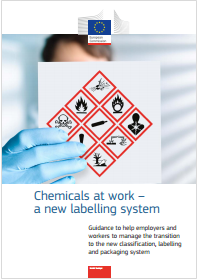// Documenti disponibili n: 46.592
// Documenti scaricati n: 36.665.022
Stainless Steel a Sustainable Material for:
1. People
Before we can determine whether stainless steel is a sustainable material, we should first define what we mean by sustainability in relation to what is known as the triple bottomline: People, Planet and Profit. The material, in its use or in its production process, respects the human being, especially in terms of health and safety. A sustainable material does not harm the people working to produce it, or the people who handle it during its use, recycling and ultimate disposal. Stainless steel is not harmful to people during either its production or use. A protective layer forms naturally on all stainless steels because of the inclusion of chromium. The passive layer protects the steel from corrosion – ensuring a long life. As long as the correct grade of stainless is selected for an application, the steel remains inert and harmless to the people who handle it and the environment. These characteristics have made stainless steel the primary material in medical, food processing, household and catering applications.
2. Planet
The emission footprints of the material, especially those related to carbon, water and air, are minimised. Reuse and recyclability are at high levels. The material has low maintenance costs and a long life, both key indicators that the impact of the material on the planet is at the lowest levels possible. The electric arc furnace (EAF), the main process used to make stainless steels, is extremely efficient. An EAF has a low impact on the environment in terms of both CO2 and other emissions. The EAF is also extremely efficient at processing scrap stainless, ensuring that new stainless steel has an average recycled content of more than 60%. Stainless steels are easily recycled to produce more stainless steels and this process can be carried on indefinitely. It is estimated that about 80% of stainless steels are recycled at the end of their life. As stainless steel has a high intrinsic value, it is collected and recycled without any economic incentives from the public purse.
...
Add more in attachment
ISSF International Stainless Steel Forum
Collegati

Guidance to help employers and workers to manage the transition to the new classification, labelling and packaging system.
This document is intended to provide ...
ID 3223 | Update 05.03.2035 / In allegato
Regolamento delegato (UE) N. 1062/2014 della Commissione del 4 agosto 2014 relativo al progr...
ID 24116 | 16.06.2025
I controlli sulle importazioni dei prodotti chimici soggetti alla disciplina del Regolamento (CE) n. 1907/2006 - REACH (Registration, Evaluat...
Testata editoriale iscritta al n. 22/2024 del registro periodici della cancelleria del Tribunale di Perugia in data 19.11.2024